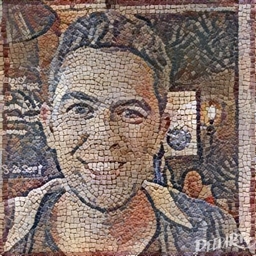
David Robson
Writer at Freelance
Award-winning science writer and author of The Intelligence Trap, The Expectation Effect, and The Laws of Connection (Canongate/Pegasus). Agent: @Plittyc
Articles
-
2 weeks ago |
newscientist.com | David Robson
Conversation lies at the heart of our relationships – yet many of us find it surprisingly hard to talk to others. We may feel anxious at the thought of making small talk with strangers and struggle to connect with the people who are closest to us. If that sounds familiar, Alison Wood Brooks hopes to help.
-
2 weeks ago |
newscientist.com | David Robson
It feels like we have barely left winter in the northern hemisphere, yet here we are nearing midsummer day. The sight of the sun blazing in the sky can mean only one thing: a slew of lifestyle articles and social media posts advising us how to get “beach-body ready”. A friend recently mentioned that he dreads the summer for this very reason. “I’ve given up even trying to get a six-pack,” he told me.
-
2 weeks ago |
tes.com | David Robson
Imagine there is an intervention that has the potential to raise the attainment of every child in your school. This approach costs relatively little, but has the power to instantly enhance pupils’ focus, memory and problem-solving skills. As an added bonus, it will boost their emotional regulation and may relieve feelings of anxiety and depression in those suffering from poor mental health. Oh, and it will also help children to live longer.
-
1 month ago |
newscientist.com | David Robson
This article is part of a special series exploring the radical potential of the human imagination. Read more here. Feeling stressed about an upcoming event? Imagine, for a moment, that you have a magic anti-anxiety pill in front of you that will take away your nerves. Picture its packaging, and feel yourself popping the pill from its foil. Now, visualise bringing it to your mouth, dropping it in, and conjure up the sensation of swallowing it.
-
1 month ago |
newscientist.nl | David Robson
Steeds meer onderzoek wijst uit dat er een sterk verband bestaat tussen een ongezonde huid en ouderdomsziekten zoals diabetes, hartaandoeningen en dementie. De huid is verreweg ons grootste orgaan. Afhankelijk van je gewicht en je massa beslaat hij zo’n 1,5 tot 2 vierkante meter en weegt hij tussen de 3,5 en 10 kilo: zo’n 15 procent van je totale lichaamsmassa. Dit is een premium-artikelLees direct verder, al vanaf €1,99 per maand. Al abonnee? Log in om direct verder te kunnen lezen.
Try JournoFinder For Free
Search and contact over 1M+ journalist profiles, browse 100M+ articles, and unlock powerful PR tools.
Start Your 7-Day Free Trial →X (formerly Twitter)
- Followers
- 13K
- Tweets
- 11K
- DMs Open
- Yes

RT @Psych_Writer: How to strike up a friendly conversation https://t.co/hzNJbjXd75 New Psyche Guide by @emyeom. It can be awkward at first,…

RT @doctor_oxford: I am a palliative care doctor who is not opposed to AD. But on the eve of tomorrow's vote, it boils down to this. En…

RT @koenfucius: Can we control our emotions, or do they control us? Believers in the latter tend to have lower wellbeing; others tend to e…

